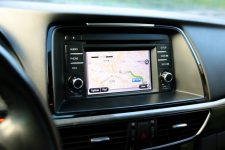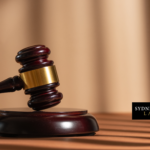Driverless Cars – the Next Legal Frontier?

Let’s take a drive into the future.
It might sound like an episode of the Jetsons, but at some stage in the not-too-distant-future we are bound to find ourselves zooming about in driverless cars…. Right?
We humans tend to love the idea of making life easier, and what could be better than slipping into your work car, inputting your destination – then catching a quick snooze or plate of pancakes on the way to the office?
Now before you assume we’re out on Pluto with this one, consider this: aren’t we actually already partway there?
Think of park assist, GPS vocals, wireless entertainment and reversing cameras as examples of the way high-tech gadgetry has crept in our daily vehicular lives.
Many models are coming off the lines with deep wireless capability, and computer systems to rival any old space shuttle.
When it comes to various traffic-related offences in a ‘driverless world’, the possibilities for legal change around cause and culpability have already started to emerge.
Consider the number of paddocks and shopfronts that have already been driven into, because we delegated navigation responsibility to that nice lady chatting away on the GPS!
Multiply the technology further and we can start to ask who would be in ‘control’ of such a car, plus how could you register a vehicle that really does seem to have a mind all its own?
‘Drivers’ and ‘Responsible Persons’
What might change in legislation and case law regarding who is in fact the ‘driver’ of a driverless car?
And who may or may not be the ‘responsible person,’ should a problem arise on a journey?
Law enforcement might well scratch their collective heads if after chasing your vehicle for clearly intoxicated weaving they find you – sober, bemused and reading the paper – with no wheel or brakes to even engage!
Or let’s say these high-tech vehicles actually do come with manual override capabilities.
If these don’t activate effectively, is anybody to blame except the manufacturer?
And already some vehicles have full voice controls – just imagine a police PA during a car chase, blaring at your vehicle to ‘pull over!’ – to which the polite voice control responds: ‘I’m sorry, that instruction does not compute.’
Or if police become equipped with system-override capabilities to forcibly end your speeding, let’s just hope someone in the squad car is good at assisting at the childbirth that takes place due to the shock that’s caused.
Blame – where does it start and where does it end in such scenarios?
Hacking the pace
And the days of car jacking might well be over too, fairly scary research into the potential for car hacking is currently emerging.
It seems that the better wireless technology becomes in motor vehicles, the more vulnerable they become to car hacking.
Popular models are currently leaving the assembly line replete with fantastic computational capability, directed towards a superior driving experience. But at what price?
Techno-wizzes in the US have been able to demonstrate that it is surprisingly simple to hack into such vehicles and take over all systems. In demonstrations where the brake is manually applied by the ‘driver’ for example, the hacker simply overrides with acceleration.
Can you imagine the frightening moment when you realise that, at 100km on the freeway, your car has just been taken over by a car hacker?
And in the case of any offences committed ‘under the influence’ of your hacker, would your story about having the wheel wrested from your hands by a phantom outsider really hold water?
Maybe the ‘hacker defence’ in traffic-related offences is closer than we think.
Transforming our responsibility
At first it’s possible that we citizens would take an ‘all care and no responsibility’ approach regarding our driverless driving.
Blame it on the manufacturer, blame it on the other driverless car, but don’t blame it on me might be a tempting way to look at our driverless future.
Knowing the incredible malleability of legislation and case law, terms like ‘driver’ and ‘responsible person’ in the context of traffic law would almost certainly remain with human drivers – even in a driverless world.
That is, adults and P-plates in any driverless car would continue to have ultimate legal responsibility in most cases, even if the steering wheel is virtually out of their control!
Plus, considering the substantial revenue generated for police by our minor human offences, it’s likely the prosecution would fight to keep culpability firming in the hands of the car’s occupant – whatever the circumstances.
For example, it would be most unlikely to see s112 DUI or s117 reckless driving offences resisted effectively, even if your car is 100% in control.
And it’s hard to see how the large corporates devising these driverless systems wouldn’t find a way to slip out from the clutches of traffic law.
For a start, a ‘responsible occupant’ would probably need to be identified before any journey, for manual override purposes – with DUI, fatigue and so on being no-nos for this designated person.
Offences related to seat changing after an accident? Well, technology to identify the seating position of each occupant might assist… but let’s not consider too closely the body part required for seat scanning processes!
Sydney 2025?
Even if the inevitable happens and road-related laws are massaged to keep all blame firmly with the occupant of the driverless car, it’s still going to cause a few giggles as some of these fancy rides morph into glitching robots.
Watch out for the mum trying to get her kids over the Harbour Bridge to school, only to find her still going on an endless bridge/tunnel loop long after 3pm, sweaty noses pressed to the glass.
Mum might blame a system malfunction or car hacker, but I’d maybe check on that cheeky 12-year-old with his laptop open on the backseat!
And when it comes to the nice computer taking your destination command, bad pronunciation at the ‘destination input’ phase might well take you 50km off course – to North Road, not North Ryde (Try blaming the alter destination key that got stuck in the Sydney summer heat!).
Plus who wouldn’t want to be the last ‘driver-driven’ car on the Princes Highway when a freak electrical storm brings all driverless cars to a puttering halt?
1990s classics with their simple systems might yet make a comeback…
Science non-fiction
We can keep our tongues in our respective cheeks to a certain extent on the driverless car front.
But knowing that the law is beginning to deal with driver responsibility versus vehicle technology, it’s only a matter of time before issues multiply in the domain of traffic offences.
Hmm – do we really want that Jetsons ride after all?
It’s one thing to drive to the best of your ability to avoid infringements – but it’s another to have to have to have an IT degree to get yourself safely to the shops!
Whatever the case, it seems certain that the law will change with the times: probably with a view to keeping responsibility firmly in the laps of human drivers… and revenue firmly in the hip pockets of governments.






